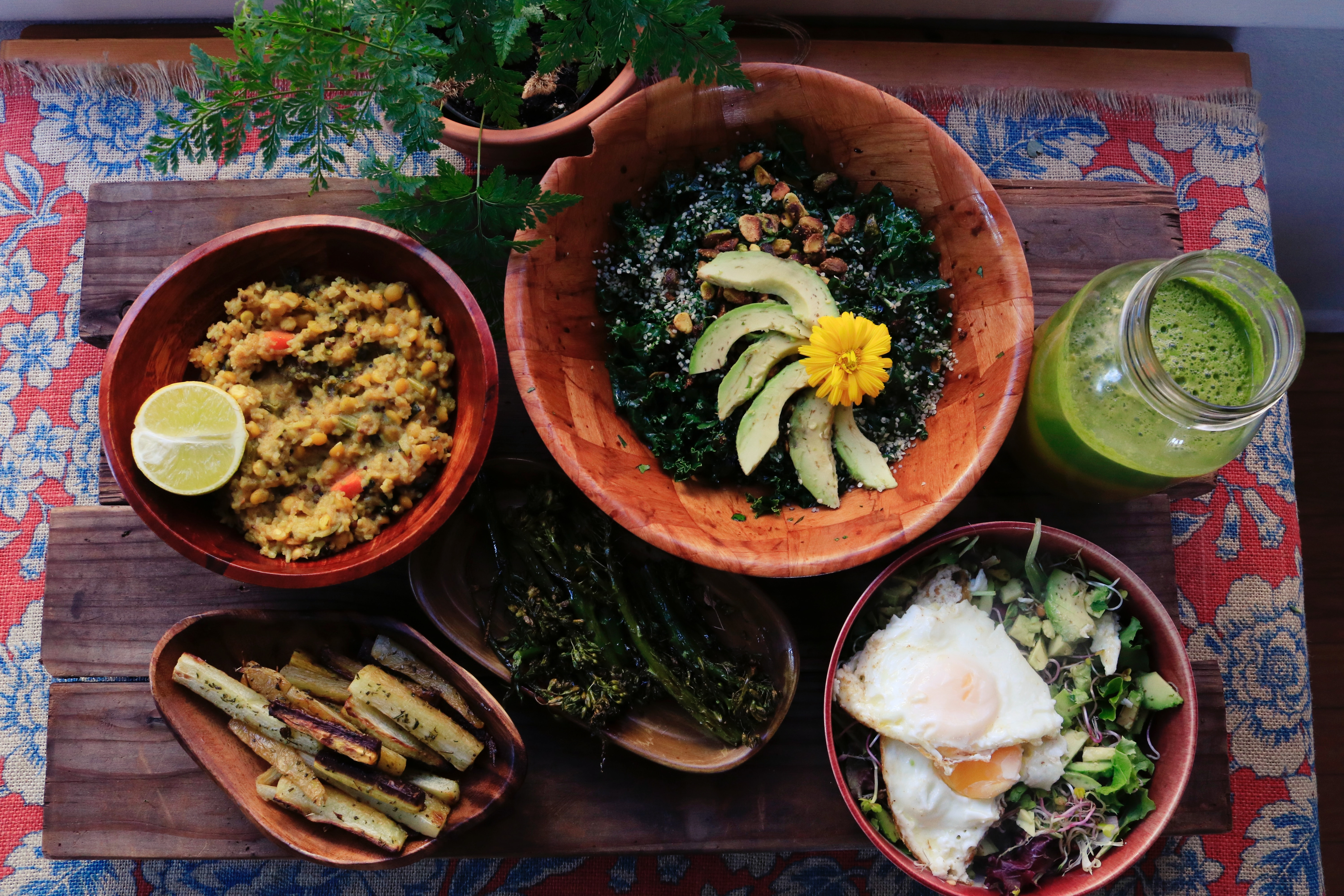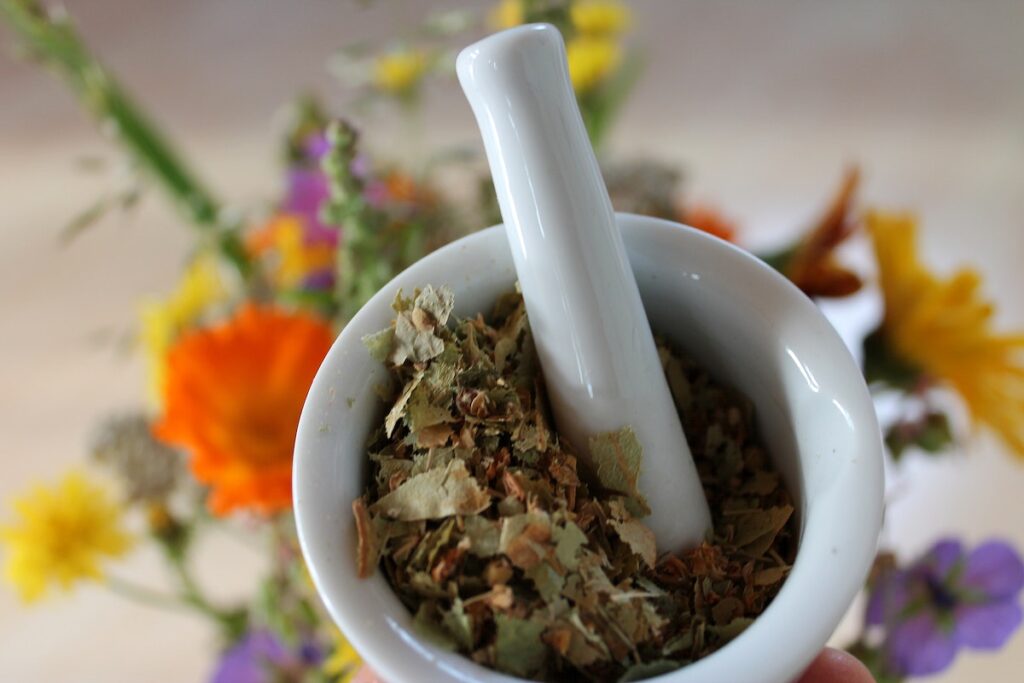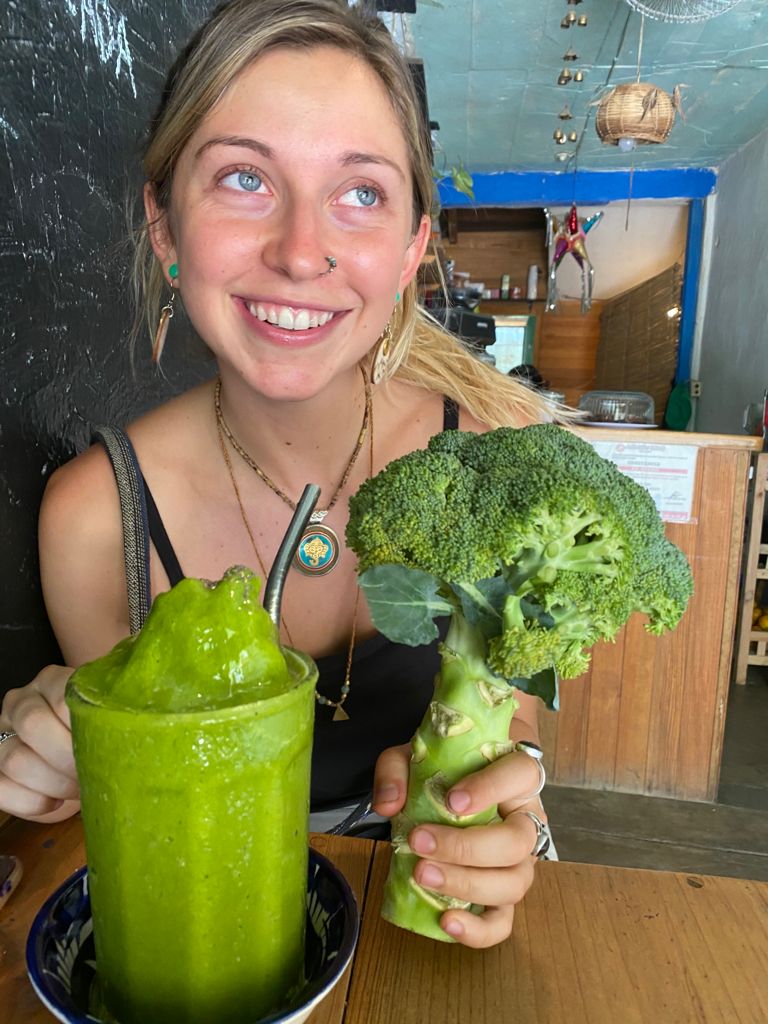Discover Ayurveda: A Time-Tested Lifestyle for Optimal Living

Ayurveda, the ancient science of life, offers a holistic approach to improving health and well-being by aligning our bodies, minds, and spirits with the rhythms of nature. Ayurveda, which originated in India over 5,000 years ago, views each individual as a unique combination of the three doshas: Vata, Pitta, and Kapha. These doshas represent various makeups of the 5 elements; Earth, air, water, fire, and space. Most people have dominant elements within the makeup of their physical body, and adjusting lifestyle habits in accordance can be extremely beneficial. Dosha aside, adopting certain general Ayurvedic practices can also show improved health and vitality. Here, I will share some information on Ayurvedic knowledge and practice that may help you.
Harmonizing with Nature
Harmonizing with nature lies at the core of Ayurveda’s wisdom, recognizing our intrinsic connection with the natural world. Just as the seasons change, so do our bodies and minds. By embracing this cyclical nature and adjusting our daily routines and habits accordingly, we can optimize our health and well-being. Here are a few things we can do to harmonize our bodies with these cycles.
– In the spring, a time of renewal and growth, incorporating lighter and cleansing foods such as; light grains, berries, and leafy greens, can help us shed accumulated winter heaviness.
– In the heat of summer, favoring cooling foods such as; coconuts, watermelons, yogurt, and naturally sweet foods while staying hydrated supports our bodies’ need to stay balanced in the rising temperatures.
– As autumn approaches, grounding and warming foods such as; ginger, spices, and whole grains, can help us prepare for the cooler months ahead.
– During winter, focusing on nourishing and comforting foods such as; soups, stews, root vegetables, and warm drinks, help sustain us through the colder season.
In addition to dietary adjustments, Ayurveda encourages syncing our activities with the natural rhythms of the day, such as waking up early with the sunrise and winding down as the sun sets. By attuning ourselves to nature’s cycles, we can tap into its healing power and experience increased vitality and immunity.
The Gentle Approach: Ayurveda as a Medical Means of Healing

Unlike pharmaceuticals that often provide quick fixes but may lead to dependency or side effects, Ayurveda takes a more gradual and gentle approach to healing. While Ayurvedic treatments may take longer to show results, they work in harmony with your body and promote lasting effects. By addressing the underlying imbalances and improving overall health, Ayurveda fosters sustainable well-being.
Understanding Doshas and Digestion
At the core of Ayurveda lies the concept of doshas, which are the three fundamental energies that govern our physical and mental constitution: Vata, Pitta, and Kapha. Understanding your unique dosha constitution can guide you to make personalized lifestyle choices to achieve balance and harmony. For this, it is important to consult an Ayurveda practitioner in order for them to determine your Prakriti (nature) and possible imbalances. If you are going to do this, it is important to do your research on your practitioner, as some practitioners may be more like salespersons, attempting to sell you their ayurvedic products.
Ayurveda also places great importance on proper digestion as a cornerstone of good health. By optimizing our digestive fire (agni), we ensure that our bodies assimilate nutrients efficiently and prevent the accumulation of toxins (ama). A few ways you can help to optimize agni are;
- Eating your biggest meal when the sun is at its strongest. Believe it or not, the sun’s rays help our digestion!
- Not taking cold drinks with food. If you are going to drink something with food, opt for something warm either right before or right after a meal, then try to give your stomach at least 1-3 hours to digest without taking any more food or drinks.
- Rest after eating. If you ever took a psychology class in school, the parasympathetic nervous system is often characterized as, “rest & digest.” When you are able to rest, and get your system into parasympathetic mode, it helps you to digest your food.
Mindful Nutrition for Nourishment

In Ayurveda, mindful nutrition goes beyond counting calories or strict diets. It’s about understanding the unique needs of your body and choosing foods that support your constitution. Here are some general guidelines for Ayurvedic eating, along with specific examples of Ayurveda recommended meals and things to incorporate or avoid:
1. Emphasize Wholesome, Nutrient-Rich Foods:
– Incorporate a variety of seasonal fruits and vegetables into your diet.
– Choose whole grains like quinoa, brown rice, and oats for sustained energy.
– Include legumes such as lentils, chickpeas, and mung beans for protein.
– If and when consuming animal products, opt for local, farm-raised, humane options.
2. Mindful Eating Habits:
– Eat in a calm and peaceful environment, free from distractions.
– Chew your food thoroughly to aid digestion and nutrient absorption.
– Avoid overeating, as it can overwhelm your digestive system.
– Avoid eating heavy meals for dinner, or later in the day. Your digestion is strongest when the sun is strongest. Opt for light evening meals for better digestion and sleep.
3. Ayurvedic Meal Examples for Each Dosha:
Vata Dosha:
– To balance Vata’s airy and light nature, focus on warm, grounding foods.
– Breakfast: Oatmeal with stewed apples, cinnamon, and a sprinkle of nuts and seeds topped with a drizzle of coconut oil or ghee.
– Lunch: Warm and nourishing vegetable soup with quinoa or barley.
– Dinner: Baked sweet potatoes with a side of steamed greens and a drizzle of ghee.
Pitta Dosha:
– To pacify Pitta’s fiery energy, opt for cooling and soothing foods.
– Breakfast: Coconut chia pudding topped with fresh berries and a sprinkle of shredded coconut.
– Lunch: Cucumber and mint salad with quinoa and a cooling yogurt dressing.
– Dinner: Stir-fried zucchini and tofu with basmati rice and cilantro.
Kapha Dosha:
– To balance Kapha’s earthy and heavy nature, favor light and warming foods.
– Breakfast: Spiced oat bran with grated ginger, honey, and a few raisins.
– Lunch: Roasted Brussels sprouts and asparagus with a quinoa and spinach salad.
– Dinner:Lentil and vegetable stew with a squeeze of lemon for added lightness.
4. Foods to Incorporate:
– Healthy fats like ghee (clarified butter), coconut oil, and olive oil in moderation.
– Herbal teas such as ginger tea, chamomile tea, or tulsi tea for digestion and calming effects.
– Spices like turmeric, cumin, coriander, and fennel to enhance digestion and flavor.
5. Foods to Avoid or Limit:
– Processed and refined foods that lack essential nutrients.
– Heavy and greasy foods that can weigh down digestion.
– Excessive caffeine and alcohol, which can disturb dosha balance.
Remember that Ayurveda is highly individualized, and what works for one person may not suit another. It’s beneficial to consult with an Ayurvedic practitioner to receive personalized dietary recommendations based on your unique constitution and current imbalances. By adopting mindful eating practices and making conscious food choices, you can experience greater nourishment, improved digestion, and overall well-being on your Ayurvedic journey.
Holistic Approach to Wellness

Ayurveda recognizes that well-being extends beyond the physical body. It encompasses mental, emotional, and spiritual harmony. Through meditation, yoga, and self-care practices, we can cultivate a deeper connection with ourselves and experience profound inner peace.
Daily Ayurvedic Habits for Improved Vitality
Incorporating Ayurvedic practices into your daily routine can significantly boost vitality and well-being. Here are a few simple suggestions to get you started:
1. Morning Ritual: Begin your day with a warm cup of water infused with lemon to kickstart your digestion and cleanse your system.
2. Mindful Eating: Eat your meals in a calm and relaxed environment, chewing your food slowly & thoroughly to aid digestion.
3. Abhyanga (Self-Massage): Treat yourself to a soothing self-massage with warm oil, promoting relaxation and nourishment for your skin and muscles.
4. Herbal Teas: Sip on herbal teas that cater to your specific dosha type to balance and rejuvenate your body.
5. Yoga and Meditation: Incorporate gentle yoga and meditation practices to promote mindfulness and connect with your inner self.
6. Early to Bed: Aim for a consistent sleep schedule, ensuring you get enough restorative sleep to rejuvenate your body and mind.
Connect with Me

Stay connected with my Ayurvedic lifestyle updates, workshops, and personalized guidance on social media or through a 1:1 call. Let’s create a community of like-minded individuals committed to embracing holistic wellness.
Instagram: the.mindful.holistic
Email: [email protected]
Phone: +1 (530) 906-8488